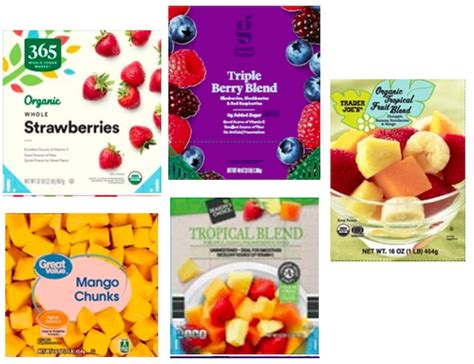
Consumers are urged to check their freezers immediately as Aldi has issued a voluntary recall of several frozen fruit products due to potential Listeria contamination. The recalled items, primarily frozen berries and fruit mixes, were distributed in 37 states and could pose a serious health risk, especially to pregnant women, newborns, the elderly, and individuals with weakened immune systems.
Aldi’s recall, initiated after routine testing revealed the presence of Listeria monocytogenes, affects various products under the Season’s Choice brand. “Aldi is recalling specific frozen fruit products due to possible Listeria contamination,” the company stated in its official announcement. The recall emphasizes the importance of consumers checking their freezers and discarding any potentially affected products.
Listeria monocytogenes is an organism that can cause serious and sometimes fatal infections. Symptoms of listeriosis, the infection caused by Listeria, can include high fever, severe headache, stiffness, nausea, abdominal pain, and diarrhea. In pregnant women, listeriosis can cause miscarriages, stillbirths, premature delivery, or life-threatening infection of the newborn.
The recalled products include Season’s Choice Frozen Strawberries, Season’s Choice Frozen Tropical Blend, Season’s Choice Frozen Mixed Fruit, and Season’s Choice Frozen Blueberries. These products were available for purchase at Aldi stores in numerous states across the country. Consumers who have purchased these products are advised not to consume them and to either discard them immediately or return them to their local Aldi store for a full refund.
Aldi has issued a comprehensive list of the recalled products, including specific product codes and sell-by dates, to assist consumers in identifying potentially contaminated items. The company is working closely with health officials and the Food and Drug Administration (FDA) to ensure the safety of its products and to prevent further contamination.
The recall underscores the critical importance of food safety protocols and the potential risks associated with frozen food products. Listeria contamination can occur at various stages of the food production process, from harvesting to processing and packaging. Consumers are encouraged to practice proper food handling techniques, including thoroughly washing fruits and vegetables and cooking food to the appropriate internal temperature, to minimize the risk of foodborne illness.
This incident is not the first time frozen fruit has been subject to a recall. Over the years, several similar incidents have occurred, highlighting the ongoing challenges in ensuring the safety of frozen food products. These recalls often result in significant financial losses for food producers and retailers and can erode consumer confidence in the safety of the food supply.
Aldi has implemented measures to prevent future incidents of Listeria contamination, including enhanced testing protocols and improved sanitation practices. The company is committed to providing safe, high-quality products to its customers and is taking all necessary steps to address the current situation.
The FDA and Centers for Disease Control and Prevention (CDC) are closely monitoring the situation and providing guidance to consumers and healthcare providers. They are urging individuals who experience symptoms of listeriosis after consuming the recalled products to seek medical attention immediately.
This recall serves as a reminder of the importance of vigilance in food safety and the potential risks associated with consuming contaminated food products. Consumers are encouraged to stay informed about food recalls and to follow the recommendations of health officials to protect themselves and their families from foodborne illness. Aldi is committed to resolving this issue promptly and transparently and to regaining the trust of its customers.
The following information provides a comprehensive overview of the Aldi frozen fruit recall, including detailed product information, potential health risks, and steps consumers should take to protect themselves.
Detailed Product Information:
The Aldi recall specifically targets frozen fruit products sold under the Season’s Choice brand. It is crucial to identify the affected products accurately to ensure consumer safety. The recalled products are:
- Season’s Choice Frozen Strawberries: These frozen strawberries are sold in various package sizes and may be used in smoothies, desserts, or eaten as a standalone snack. Consumers should check the packaging for specific product codes and sell-by dates.
- Season’s Choice Frozen Tropical Blend: This blend typically includes a mix of fruits such as mangoes, pineapples, and papayas. It is often used in smoothies or fruit salads.
- Season’s Choice Frozen Mixed Fruit: This product generally contains a combination of berries and other fruits, such as strawberries, blueberries, raspberries, and peaches.
- Season’s Choice Frozen Blueberries: These frozen blueberries are often used in baking, smoothies, or eaten as a healthy snack.
To determine if a product is affected by the recall, consumers should carefully examine the packaging for the following information:
- Product Name: Verify that the product name matches one of the recalled items.
- Brand Name: Ensure that the product is under the Season’s Choice brand, sold exclusively at Aldi stores.
- Product Codes: Check for specific product codes or lot numbers listed on the packaging. Aldi has provided a comprehensive list of affected codes, which can be found on their website or at Aldi stores.
- Sell-by Dates: Look for specific sell-by dates that fall within the recall period. Aldi has identified the range of dates for the affected products.
- Package Size: Note the size of the package, as different sizes may have different product codes and sell-by dates.
Consumers are advised to compare the information on their product packaging with the list provided by Aldi to confirm whether the product is subject to the recall. If there is any doubt, it is best to err on the side of caution and discard the product.
Health Risks Associated with Listeria Contamination:
Listeria monocytogenes is a bacterium that can cause a serious infection called listeriosis. While healthy individuals may experience mild symptoms, such as fever, muscle aches, nausea, vomiting, and diarrhea, certain populations are at higher risk of severe complications. These high-risk groups include:
- Pregnant Women: Listeriosis can cause miscarriages, stillbirths, premature labor, and life-threatening infections in newborns. Pregnant women are approximately 10 times more likely to contract listeriosis than the general population.
- Newborns: Newborns can contract listeriosis from their mothers during pregnancy or delivery. The infection can cause serious complications, including sepsis, meningitis, and death.
- The Elderly: Older adults are more susceptible to listeriosis due to weakened immune systems. The infection can cause severe illness, including bloodstream infections and meningitis.
- Individuals with Weakened Immune Systems: People with compromised immune systems, such as those undergoing chemotherapy, organ transplant recipients, and individuals with HIV/AIDS, are at increased risk of listeriosis.
- People with Chronic Diseases: Those with conditions like diabetes or kidney disease are also at a higher risk.
Symptoms of listeriosis can appear anywhere from a few days to several weeks after consuming contaminated food. Common symptoms include:
- High fever
- Severe headache
- Stiffness
- Nausea
- Abdominal pain
- Diarrhea
Invasive listeriosis, which occurs when the infection spreads beyond the gut, can cause more severe symptoms, such as:
- Meningitis (inflammation of the brain and spinal cord)
- Septicemia (blood poisoning)
If you experience any of these symptoms after consuming the recalled frozen fruit products, it is crucial to seek medical attention immediately. Early diagnosis and treatment with antibiotics can significantly reduce the risk of serious complications.
Steps Consumers Should Take:
To protect themselves and their families from the risk of Listeria contamination, consumers who have purchased the recalled Aldi frozen fruit products should take the following steps:
- Check Your Freezer: Thoroughly inspect your freezer for any of the recalled products. Pay close attention to the product name, brand, product codes, and sell-by dates.
- Do Not Consume: If you find any of the recalled products in your freezer, do not consume them. Eating contaminated food can lead to listeriosis and severe health complications.
- Discard the Product: Dispose of the recalled product immediately in a sealed bag to prevent accidental consumption by humans or animals.
- Clean Your Freezer: After removing the recalled product, thoroughly clean your freezer with warm, soapy water. Listeria bacteria can survive in cold environments, so it is essential to disinfect the area to prevent cross-contamination.
- Wash Your Hands: Wash your hands thoroughly with soap and water after handling the recalled product or cleaning your freezer.
- Contact Aldi: Contact Aldi’s customer service or visit their website for more information about the recall and how to obtain a refund.
- Monitor for Symptoms: If you have consumed any of the recalled products, monitor yourself for symptoms of listeriosis. If you experience any of the symptoms, seek medical attention immediately.
- Consult Your Doctor: If you are pregnant, elderly, or have a weakened immune system, consult your doctor if you have consumed any of the recalled products, even if you do not experience any symptoms. Your doctor may recommend testing or treatment to prevent potential complications.
Preventing Listeria Contamination in the Future:
To minimize the risk of Listeria contamination and other foodborne illnesses, consumers should follow these food safety guidelines:
- Wash Fruits and Vegetables: Thoroughly wash all fruits and vegetables under running water before consuming them, even if they are pre-washed or organic. Use a clean scrub brush to remove dirt and debris.
- Cook Food to the Correct Temperature: Cook meat, poultry, and seafood to the recommended internal temperature to kill harmful bacteria. Use a food thermometer to ensure accurate temperature readings.
- Separate Raw and Cooked Foods: Prevent cross-contamination by keeping raw meat, poultry, and seafood separate from cooked foods and ready-to-eat items. Use separate cutting boards and utensils for raw and cooked foods.
- Refrigerate Food Promptly: Refrigerate perishable foods within two hours of purchase or preparation. Bacteria can grow rapidly at room temperature, so it is essential to keep food cold to slow their growth.
- Clean and Sanitize Kitchen Surfaces: Regularly clean and sanitize kitchen surfaces, such as countertops, cutting boards, and sinks, to prevent the spread of bacteria. Use a bleach solution or a commercial disinfectant.
- Wash Hands Frequently: Wash your hands frequently with soap and water, especially before and after handling food, after using the restroom, and after touching animals.
Aldi’s Response to the Recall:
Aldi has taken swift action to address the Listeria contamination issue and to protect its customers. The company has issued a voluntary recall of the affected products, notified health officials and the FDA, and provided information to consumers about the recall.
Aldi is working closely with its suppliers to identify the source of the contamination and to implement measures to prevent future incidents. The company is also conducting enhanced testing of its products to ensure their safety.
Aldi has expressed its commitment to providing safe, high-quality products to its customers and is taking all necessary steps to address the current situation. The company is urging consumers to contact its customer service or visit its website for more information about the recall.
FDA and CDC Involvement:
The FDA and CDC are actively involved in the investigation of the Listeria contamination issue. They are working with Aldi and other stakeholders to identify the source of the contamination, to assess the extent of the outbreak, and to provide guidance to consumers and healthcare providers.
The FDA is conducting inspections of food processing facilities to ensure that they are following proper food safety practices. The CDC is monitoring cases of listeriosis to track the spread of the infection and to identify potential risk factors.
The FDA and CDC are providing regular updates to the public about the recall and the investigation. They are urging consumers to stay informed and to follow their recommendations to protect themselves from foodborne illness.
Past Instances of Frozen Food Recalls:
This Aldi frozen fruit recall is not an isolated incident. Over the years, there have been several recalls of frozen food products due to contamination with Listeria, Salmonella, and other harmful bacteria. These recalls highlight the challenges of ensuring the safety of frozen food products and the importance of implementing robust food safety protocols.
In recent years, several companies have recalled frozen vegetables, fruits, and other food products due to potential contamination. These recalls have resulted in significant financial losses for food producers and retailers and have eroded consumer confidence in the safety of the food supply.
These past recalls underscore the need for ongoing vigilance in food safety and the importance of consumers staying informed about potential risks.
The Importance of Food Safety Protocols:
Food safety protocols are essential for preventing foodborne illnesses and protecting public health. These protocols include measures such as:
- Hazard Analysis and Critical Control Points (HACCP): HACCP is a systematic approach to identifying and controlling potential hazards in food production. It involves analyzing the food production process to identify critical control points where hazards can be prevented, eliminated, or reduced to acceptable levels.
- Good Manufacturing Practices (GMP): GMPs are a set of guidelines that outline the minimum standards for food processing facilities. They cover aspects such as sanitation, hygiene, equipment maintenance, and process control.
- Traceability Systems: Traceability systems allow food producers to track the movement of their products from farm to table. This information can be used to quickly identify and recall contaminated products in the event of a foodborne illness outbreak.
- Testing and Monitoring: Regular testing and monitoring of food products and processing environments can help detect contamination early and prevent it from spreading.
By implementing these food safety protocols, food producers can significantly reduce the risk of foodborne illnesses and protect the health of their customers.
Consumer Education and Awareness:
Consumer education and awareness are crucial for preventing foodborne illnesses. Consumers should be educated about:
- Proper food handling techniques: This includes washing hands, separating raw and cooked foods, cooking food to the correct temperature, and refrigerating food promptly.
- Food safety risks: Consumers should be aware of the potential risks associated with consuming contaminated food products.
- Food recall information: Consumers should stay informed about food recalls and follow the recommendations of health officials to protect themselves from foodborne illness.
By increasing consumer education and awareness, we can empower individuals to make informed choices about their food and to take steps to protect themselves and their families from foodborne illness.
Conclusion:
The Aldi frozen fruit recall serves as a stark reminder of the importance of food safety and the potential risks associated with consuming contaminated food products. Consumers are urged to check their freezers immediately for the recalled products and to follow the recommendations of health officials to protect themselves from listeriosis. Aldi is committed to resolving this issue promptly and transparently and to regaining the trust of its customers. The FDA and CDC are actively involved in the investigation and are providing guidance to consumers and healthcare providers. By staying informed and following food safety guidelines, consumers can minimize the risk of foodborne illness and protect their health.
Frequently Asked Questions (FAQ):
-
What frozen fruit products are affected by the Aldi recall? The recall affects Season’s Choice Frozen Strawberries, Season’s Choice Frozen Tropical Blend, Season’s Choice Frozen Mixed Fruit, and Season’s Choice Frozen Blueberries sold at Aldi stores. Consumers should check the product name, brand, product codes, and sell-by dates on the packaging against the official list provided by Aldi.
-
What should I do if I have purchased one of the recalled products? Do not consume the product. Discard it immediately in a sealed bag to prevent accidental consumption. Clean your freezer thoroughly with warm, soapy water. Wash your hands with soap and water after handling the product or cleaning your freezer. Contact Aldi for information on refunds.
-
What are the symptoms of Listeria infection (listeriosis)? Symptoms can include high fever, severe headache, stiffness, nausea, abdominal pain, and diarrhea. In pregnant women, listeriosis can cause miscarriages, stillbirths, premature delivery, or life-threatening infection of the newborn. If you experience these symptoms after consuming the recalled products, seek medical attention immediately.
-
Who is most at risk from Listeria contamination? Pregnant women, newborns, the elderly, and individuals with weakened immune systems are at higher risk of developing severe complications from listeriosis. These groups should be particularly vigilant and seek medical advice if they have consumed the recalled products, even if they don’t experience symptoms.
-
How can I prevent Listeria contamination in the future? Practice proper food handling techniques, including thoroughly washing fruits and vegetables, cooking food to the appropriate internal temperature, separating raw and cooked foods, refrigerating food promptly, and cleaning and sanitizing kitchen surfaces. Stay informed about food recalls and follow the recommendations of health officials.
The information provided in this article is based on the latest available information from Aldi, the FDA, and the CDC. Consumers are encouraged to stay informed and to follow the recommendations of health officials to protect themselves from foodborne illness.









